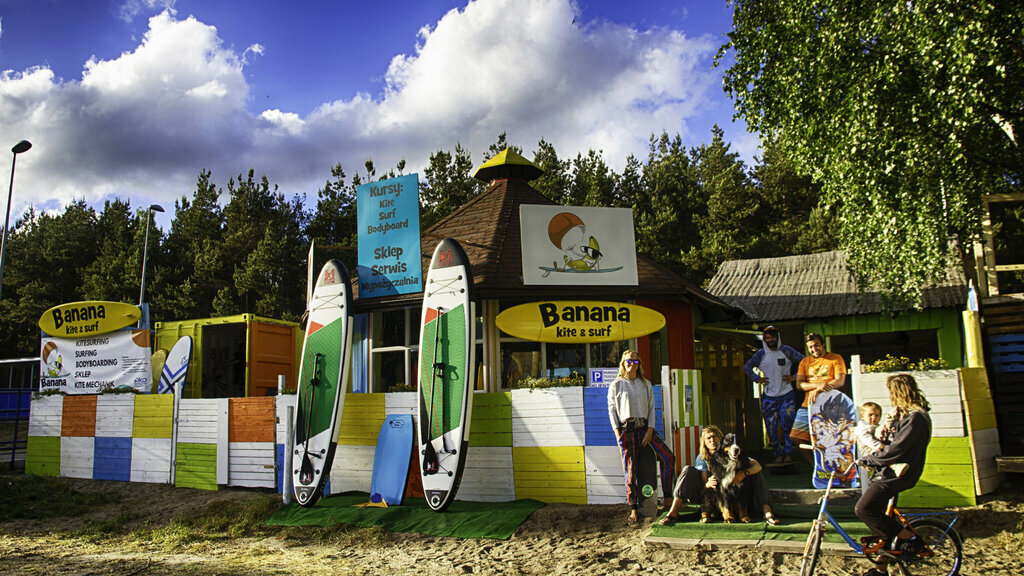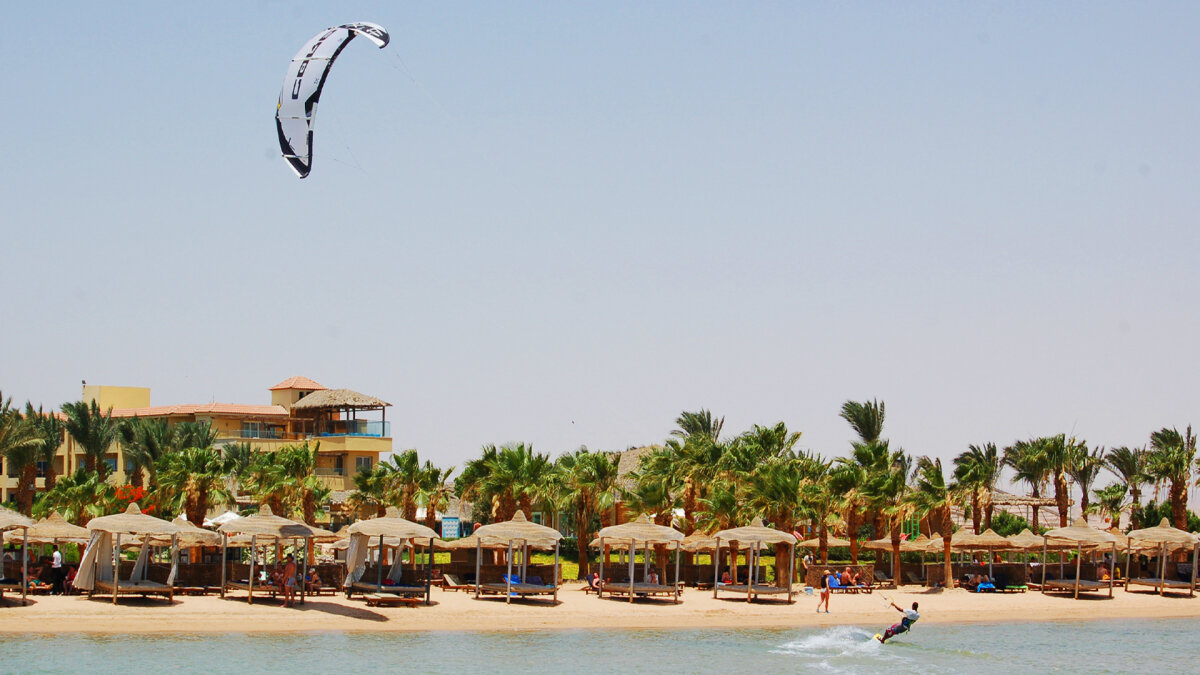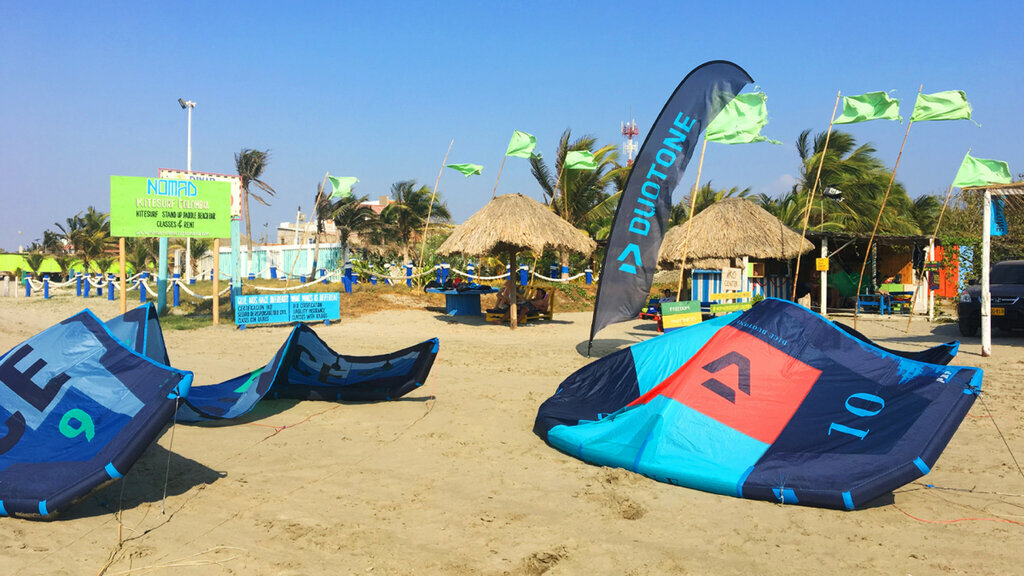Try the new IKO website at https://beta.ikointl.com/

The Impacts of New Kitesurfing Schools Emerging Around the World
From year to year, we continue to see exponential growth in kitesurfing, both as a sport and as a global industry. New products emerge onto the market yearly; competitions and kitesurfing events get bigger with bolder sponsorships and more live stream coverage, and new locations get added to the already growing list of venues that have become synonymous with the growth and progression of kiteboarding.
With the aspiring talent of today’s youth engaging in the sport, new riders continue to push the boundaries of what is possible through rider innovation and pure athletic commitment, stepping into the limelight and showing us that limits are, in fact, meant to be broken.
This progressive trend has led many kitesurfers on a quest to seek out new kiting spots around the world that offer amazing wind and water conditions where they can practice, improve, and in many cases, train towards that next world title.
From this universal popularity of kitesurfing there has been an emergence of many new kite schools in all four corners of the globe. These schools offer an assortment of various training classes that include beginner tuition, improvement kite camps and trips to exotic locations for experienced riders.
In this article, I would like to explore the social, cultural and environmental impacts that arise from setting up a kite school in a foreign, third world country. I would also like to examine how our sport, with the inclusion and participation of the IKO, can help positively influence a developing country’s economy and assist its citizens in achieving economic sustainability and future prospects.

Picture: Abu Soma Riders (Egypt)
The Positive Impacts of Opening a School and Providing Internationally Recognized Training
After establishing my own kitesurfing center in Diani Beach, on the South coast of Kenya, East Africa, my immediate thoughts were how do I add credibility to my activities, increase my bookings and online visibility, whilst ensuring the business was recognized for its professional merit.
As an IKO Level 3 instructor who was certified in 2005, I immediately set out to approach the IKO and begin the process of school affiliation. The competitive advantages of enlisting as an IKO center and becoming part of the larger IKO community were obvious from the beginning.
Skillset Leading to Employment
With my school affiliated as an IKO Center, I was now in a position to provide internationally recognized vocational water sports training to my Kenyan staff and offer jobs with tutelage to locals that would otherwise not be in a position to gain access to these set of skills or have the financial capability to enlist on a course.
The training I was able to provide, together with the IKO career pathway, allowed us to empower the local community by providing them with a set of international skills that could be used to earn a competitive salary and, in the process, brush shoulders with clientele from all around the world.
Once IKO certified and qualified, our local instructors were able to earn both a fixed monthly salary as well as a percentage commission for all the lessons they provided.
In comparison to the average basic salary that is available in Kenya and no doubt, most parts of the developing world, what a kitesurfing instructor is able to earn in a busy season will far out-weigh what they are able to earn from scrounging for work in an already low paid and saturated environment of high unemployment.
Seeing how proud our local staff were of their hard efforts to achieve an internationally recognized kitesurfing certification was a gratifying experience, both for them and us. Within the local community, our staff were a constant source of inspiration and hope for others looking to pursue a career and find a niche of their own.
Gaining Invaluable Experience
Part of the tourism mandate required by foreign investment in Kenya is to ensure the business model employs, trains and provides work for the citizens of the country. Therefore, it was extremely satisfying to see our efforts together with the IKO training program help to empower the local community and create much-needed employment opportunities and prospects.
The interaction between the locals and their foreign guests would often lead to long-lasting friendships, and in some cases, the possibility to travel and work in other industries, thus gaining further experience and an even more respectable C.V portfolio.
By helping to bridge the gap between those growing up in emerging economies and the first world, our involvement and the professional IKO structure of training and certification ensured that the locals were on a path to being able to eventually open and manage their own businesses in a professional manner that met international standards.
By training the local staff to efficiently manage their own operation, we found that a healthy dynamic of trust began to form which would further lead onto a sustainable, financially viable business model, run independently by the local staff.
Such is the model that is currently being developed in Mozambique by VilanCool Beach Resort and Kite School, a not for profit organization set up to help empower the locals into achieving economic sustainability and independence.
Creating Environmental Awareness
In countries and cities where high unemployment rates exist, such as Mombasa on the south coast of Kenya, the youth are primarily affected and face serious unemployment issues. The knock-on effects of this high unemployment rate will often be an increase in crime, anti-social behavior and drug abuse within an already fragile and unstable environment.
Kite Centers that opt to affiliate their businesses internationally with the IKO label and provide professional career opportunities for their staff open a door of opportunity for the local community to escape these vices through encouragement, support and training.
Another extremely positive aspect to mention is the environmental and waste management awareness that we can assert into a community through educational programs and incentives.
Introducing these programs that were tailored towards beach and oceanic waste management proved to be highly effective tools in lowering the amount of rubbish in certain areas, and increased local awareness for preserving the sanctity of the environment.

Picture: Nomad Kitesurf (Colombia)
The Challenging Aspects and What We Can Do to Overcome Them
Opening a kite school in a developing country can be an extremely rewarding and at times challenging experience. Here are a few things to keep in mind to alleviate the impacts.
Respect the Traditions, Customs and Religions
Establishing a kite school abroad means respecting the traditions, customs and religions of the locals living in the area. It’s important to understand that things will work in a way that is not familiar at first, and this will require patience and acceptance on both sides.
Be mindful of initial language barriers and always strive towards clear communication at first to avoid incident or disruption to service or worker attitude.
Your Carbon Footprint
When setting up a kite or water sports center in third world countries that have progressive attitudes but still suffer from under-developed economies, it is important to always watch your carbon footprint!
Working with certain kite brands will automatically mean that in order for the kite school’s product to arrive, they will need to import it externally and ship it into the area where they are based.
Importing foreign products will always involve transportation logistics and a certain amount of packaging on the product. It is important when working in developing countries, to ensure that all foreign packaging and waste is disposed of in the correct fashion and does not end up adding to the already existing problem on the ground.
Keep in mind your carbon footprint when setting up a kite or water sports center in third world countries.
Don’t Abuse the System
Responsible tourism is paramount to supporting an economy and those that work inside of it. It’s important to make sure that your kite school is consistent with the foreign investor requirements of the country you plan to set up in and that you are covered by all local tourism and county licenses. Be patient, as it can sometimes take time to work through all the red tape before you are granted these licenses.
Make sure that as a new investor or director, your school is covered by a local comprehensive liability insurance and take the time to formulate your school’s Standard Operating Procedure along with an Emergency Action Plan and a Spot Risk Assessment ( as required by the IKO during the affiliation). As a foreigner working abroad, the last thing you need to be doing is creating a public risk or disturbance through safety mismanagement or negligence.
Remember that there will be other kite schools operating in the same vicinity that follow these regulations, and they won’t respond well to unfair competition or hazardous teaching practice from uncertified, reckless instructors.
--
Would you agree or disagree regarding the various points raised in this article concerning the impacts of new emerging schools in third world countries?
Let’s keep the discussion going in the IKO Facebook group.
Author: Jamie Hockley
Banner picture: Banana Kite n Surf (Poland)
.png)

